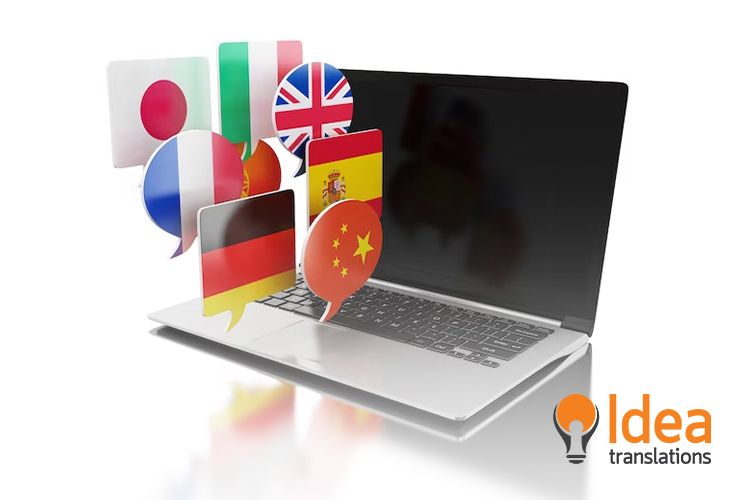
International Translation Day: Origins of the Celebration and New Challenges
Since 2017, by decision of the United Nations, every September 30th International Translation Day is commemorated. Its purpose is to celebrate the role of language professionals in connecting cultures and promoting peace and understanding.
Why is this day celebrated and what is its significance?
The History of a Legacy
The date to celebrate translators was chosen in honor of St. Jerome, the translator of the Bible and patron saint of translators. St. Jerome (347-420) was a priest in northeastern Italy who is remembered for translating most of the Bible into Latin from the original manuscripts of the New Testament.
He also translated part of the Hebrew gospel into Greek. His native language was Illyrian and he studied Latin. Jerome also spoke Greek and Hebrew, which he learned through studying and travelling. He passed away on September 30th, 420, near Bethlehem.
Immortalized as the patron saint of translators, St. Jerome left behind a precious legacy. Following in his footsteps, all those who have dedicated themselves to this profession uphold values such as integrity, creativity and commitment.
In 2022, there were more than 52,000 interpreters and translators employed in the United States.
Source: Statista
As defined by the United Nations, September 30th is an “opportunity to pay tribute to the work of language professionals, which plays an important role in bringing nations together, facilitating dialogue, understanding and cooperation, contributing to development and strengthening world peace and security.”
Whether it’s a literary, scientific, or technical work, translation and interpretation are essential for preserving clarity, fostering a positive environment, and enhancing productivity in international discourse and interpersonal communication.
Progress and Challenges to Date
Commemorating International Translation Day each year also provides an opportunity to reflect on the scope of the profession and its challenges.
“Translation should become not only an honorable profession but an art. While I do not like bloody revolutions, I would love to see a revolution of translators. Translators are the ones who should truly be liberated. In all of literature, they have been the pariahs, suffering the scorn of critics and seldom hearing a good word. When the book was good, the author got all the credit and the translator none. When the book was bad, it was the translator’s fault. May this conference be the beginning of a rebellion, where ink is spilled instead of blood.” These words were spoken over 50 years ago by Isaac Bashevis Singer (1902-1991) at the first World Conference of Translators organized by PEN.
Today, the key role of translators and their rights remain a subject of discussion and review. Samantha Schnee, translator and founder of Words Without Borders commented: “I would say a lot of progress has been made in the last 50 years. It was the case that translators routinely were expected to grant copyright in perpetuity for their translations. Famously, Gregory Rabassa’s translation of Gabriel García Márquez’s “One Hundred Years of Solitude” was a copyright grant, which really ignores the role of the translator as a creative aspect of the work. No two translators would ever create the same translation from the same text. So I think progress has been made in areas like that.”
Respectful of authors and original texts, translators are nevertheless creators in their own right. They seek not only to reproduce a literary work but to move the work forward, to expand its presence in the world.
Source: The Quebec Declaration on Literary Translation and Translators
Certainly, there are still many issues to improve. Recently, the British Museum had to apologize after a translator’s words were used without permission. Considering and even defending the work of language professionals continues to be a challenge in most countries.
As described by the International Federation of Translators: “Translation unveils a world of human experience, allowing us a window into cultures other than those we know. As climate and geopolitical shocks resonate across the globe, it also plays an important role in addressing threats to the peace and security, in diplomacy and multilateralism, sustainable development and humanitarian aid, human dignity and human rights.”
Indeed, it is thanks to translators that we can access new worlds –not only those related to literary realms–, connect with diverse cultures and worldviews, and stay informed in real time about a wide range of issues and developments. Experienced professionals bring us closer to multicultural dialogue, promote more diverse societies, and ensure a better future for all.



